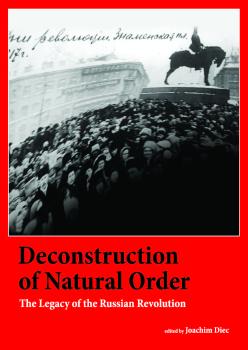Deconstruction of Natural Order: The Legacy of the Russian Revolution
Synopsis
The book focuses on selected far-reaching consequences of the Russian Revolution: the transformation of law and legal culture, aberrations in international behavior, opening the way to nationalism as a motive for another revolution and timeless gnostic thinking, which underlay the revolutionary events and has never lost its orignial productivity in Russia. The authors try to present the legacy of the revolution in the context of the category of natural order. The analysis is based on four problematic issues: the nature of unnaturalness, the problem of equality, which involves the distinction between the people and the elite, the relation between the revolution and the natural order and the understanding of natural order from the pragmatic perspective.
Chapters
-
Introduction. Natural Order and the Revolution .......... 7
-
Shaping the First Totalitarian State. The Political and Legal System at the Beginningof the Russian Revolution (October 1917–1921) and its Implications .......... 21
-
State, Business and Society in Russia: The Genesis and Models of Interaction 1917–2017 .......... 39
-
Contested Post-Soviet Secessions in the Russian Political Discourse: The Grammar of Recognition .......... 49
-
A Revolution That Has Not Happened: The Potential of the Russian Nationalist Revival .......... 67
-
Justifying the Use of Violence: A Gnostic Deconstruction of a Political Universe .......... 107
-
Conclusions. The Deconstructive Power of the Russian Revolution .......... 131
Downloads
References





